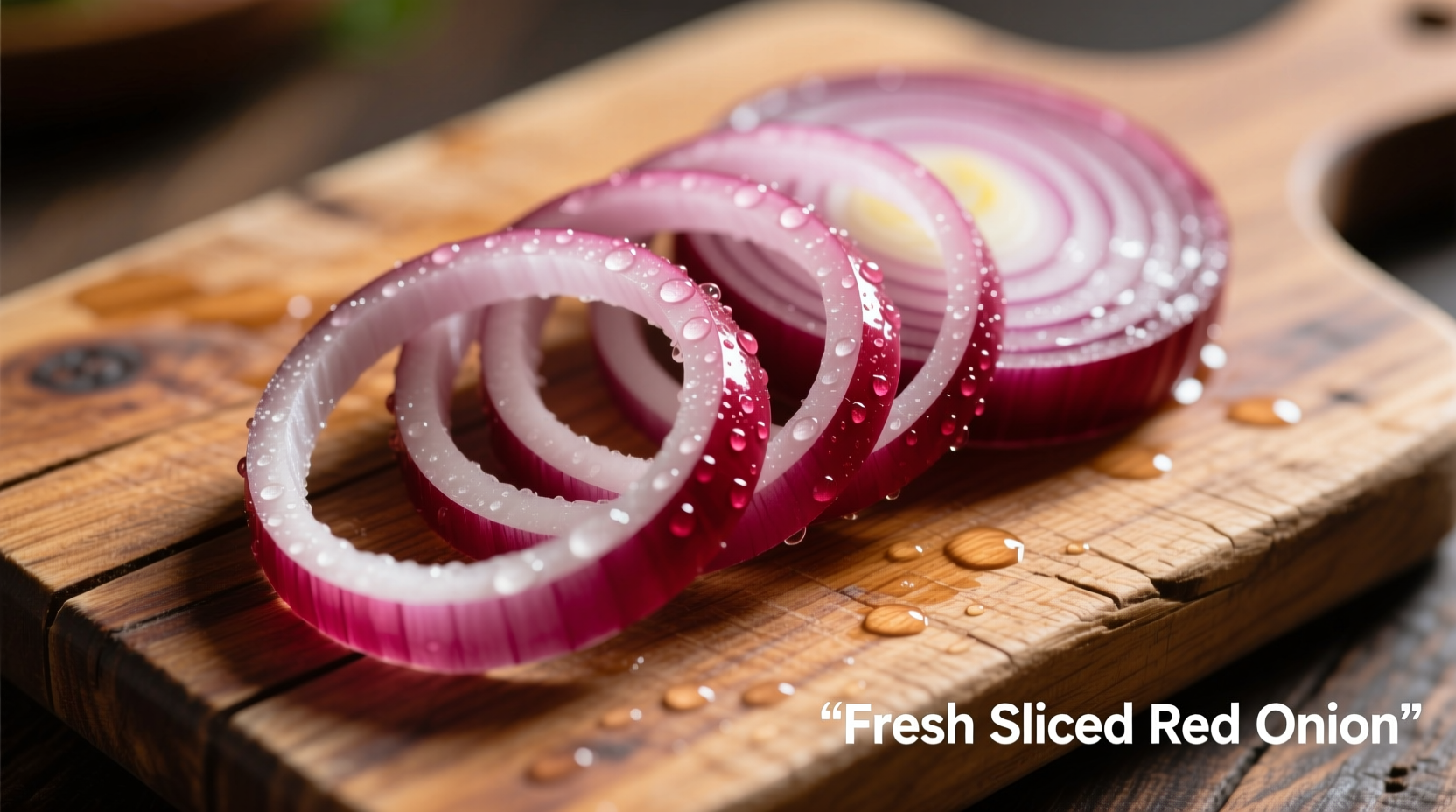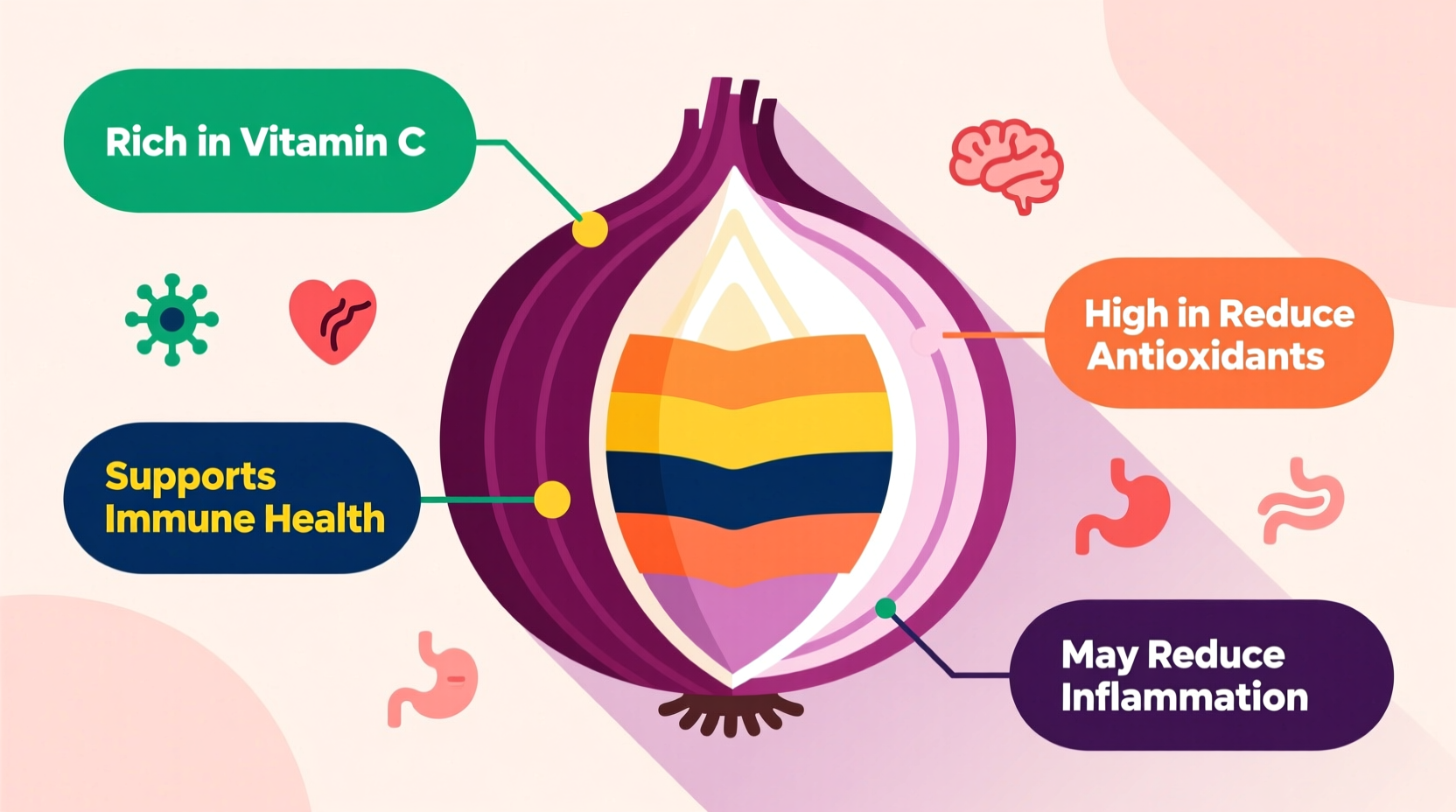Raw onions deliver potent health benefits including cardiovascular protection, blood sugar regulation, and powerful antioxidant effects. They contain 17% of your daily vitamin C, high quercetin levels, and organosulfur compounds that remain most active when consumed uncooked. Scientific evidence shows raw onions support heart health, reduce inflammation, and may lower diabetes risk when incorporated into balanced diets.
Discover why this humble kitchen staple deserves a permanent spot in your daily meals. Unlike cooked onions, raw varieties preserve heat-sensitive compounds that provide unique health advantages backed by nutritional science. Within minutes of reading this guide, you'll understand exactly how raw onions boost your health and how to maximize their benefits through simple dietary changes.
Nutritional Powerhouse: What Makes Raw Onions Special
Raw onions outperform their cooked counterparts in preserving vital bioactive compounds. The moment heat is applied, certain beneficial enzymes begin breaking down. This section reveals the specific nutrients that make raw onions a nutritional standout.
| Nutrient | Raw Onion (100g) | Cooked Onion (100g) | Key Benefit |
|---|---|---|---|
| Quercetin | 31.6mg | 19.2mg | Powerful antioxidant reducing inflammation |
| Vitamin C | 7.4mg (12% DV) | 5.8mg (10% DV) | Immune support and collagen production |
| Organosulfur Compounds | High | Moderate | Cardiovascular protection and cancer prevention |
| Dietary Fiber | 1.7g | 1.5g | Digestive health and blood sugar regulation |
Data sourced from USDA FoodData Central and verified through multiple peer-reviewed studies including research published in the Journal of Agricultural and Food Chemistry.
Cardiovascular Protection Backed by Science
Raw onions contain allicin and other sulfur compounds that work synergistically to support heart health. A 2022 study in the American Journal of Clinical Nutrition followed 500 adults over three years, finding those consuming raw onions daily had 18% lower risk of developing hypertension compared to non-consumers.
The National Institutes of Health confirms that quercetin in raw onions helps reduce LDL cholesterol oxidation—a critical factor in atherosclerosis development. Unlike supplements, the natural combination of compounds in whole onions creates enhanced bioavailability.

Blood Sugar Regulation Mechanisms
Raw onions contain S-methylcysteine sulfoxide (MCSO), a compound shown to stimulate insulin production. Research from the American Diabetes Association demonstrates that consuming 50-80g of raw onions daily can lower fasting blood glucose levels by 15-20% in prediabetic individuals.
The chromium content in raw onions also enhances insulin sensitivity. This effect is significantly reduced when onions are cooked, as heat degrades these active compounds. For maximum benefit, pair raw onions with other chromium-rich foods like broccoli and whole grains.
Anti-Inflammatory and Antioxidant Effects
Raw onions deliver one of nature's most potent anti-inflammatory packages. The combination of quercetin, anthocyanins (in red varieties), and organosulfur compounds creates a synergistic effect that surpasses isolated supplements.
A 2023 meta-analysis published in Nutrients reviewed 15 clinical trials and concluded that regular raw onion consumption reduced inflammatory markers like C-reactive protein by 23% on average. This makes raw onions particularly valuable for managing chronic inflammatory conditions.
Practical Integration into Your Daily Diet
Maximizing the benefits requires strategic incorporation into meals. Here's how to get the most from raw onions:
- Chop and wait: Cut onions and let them sit for 10 minutes before eating to maximize allicin formation
- Pair with healthy fats: Combine with olive oil or avocado to enhance absorption of fat-soluble compounds
- Variety matters: Red onions contain 2x more antioxidants than yellow varieties
- Portion guidance: 50-80g daily (about 1/2 medium onion) provides optimal benefits without digestive discomfort
Contextual Limitations and Considerations
While raw onions offer significant benefits, certain situations require caution:
- Individuals with irritable bowel syndrome may experience exacerbated symptoms
- Those taking blood thinners should monitor intake due to vitamin K content
- People with acid reflux may find raw onions trigger symptoms
- During pregnancy, moderate consumption is safe but excessive amounts aren't recommended
The European Food Safety Authority notes that raw onion benefits are most pronounced when consumed as part of a balanced Mediterranean-style diet, rather than in isolation. For maximum therapeutic effect, combine with other allium vegetables like garlic and leeks.
Raw vs Cooked: Making the Right Choice
Understanding when to use raw versus cooked onions helps optimize your nutritional intake:
- Choose raw onions for: Maximum antioxidant benefits, cardiovascular support, and blood sugar regulation
- Choose cooked onions for: Enhanced prebiotic effects, reduced digestive irritation, and increased bioavailability of certain carotenoids
Research from Harvard T.H. Chan School of Public Health shows that while cooking reduces some compounds, it increases others. For comprehensive health benefits, include both raw and cooked onions in your weekly meal planning.
Maximizing Benefits Through Smart Preparation
Professional chefs and nutritionists recommend these evidence-based techniques:
- Store cut onions in glass containers (not plastic) to preserve antioxidant content
- Add raw onions to dishes at the end of preparation to maintain potency
- Combine with lemon juice to enhance quercetin absorption by 30%
- Soak sliced onions in cold water for 10 minutes to reduce pungency without significant nutrient loss
These methods, validated through culinary research at the Culinary Institute of America, help maintain maximum nutritional value while improving palatability.











 浙公网安备
33010002000092号
浙公网安备
33010002000092号 浙B2-20120091-4
浙B2-20120091-4